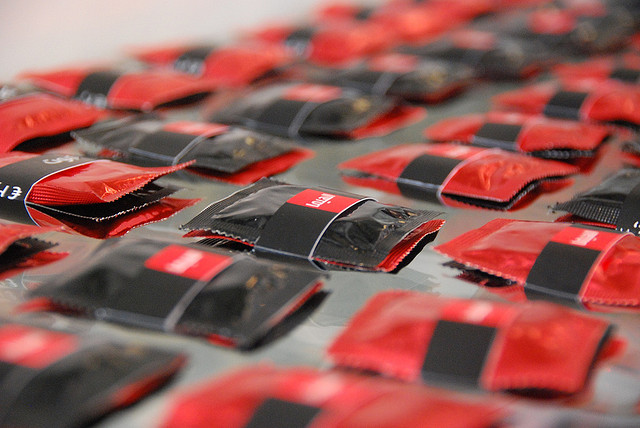Hong Kong Schools Need Better Sex Education

Talking about sex is uncomfortable and awkward for some. Others may find it easy and have enough knowledge to talk about it in an intelligent way. For parents it can be a hard topic to discuss with their children. Some parents either ignore or avoid the topic all together. It is an important conversation to have since kids are going to have sex at some point in the future. They have to be armed with enough knowledge to protect themselves and their partners from diseases and an unwanted pregnancy. If the parents are unwilling to have the conversation then someone else needs to.
In a lot of countries sex education is done through schools but in Hong Kong it is more complex since individual schools decide how they should teach it and if they should teach it. Over 40% of the schools have no sex education classes according to the Equal Opportunities Commission. This has to change as schools need to start the conversation about sex.
The Hong Kong based charity Mother’s Choice estimates every year there are nearly 7,000 unplanned pregnancies affecting girls under the age of 25 years old. The agency helps single and teenage mothers with counseling, adoption, and foster care services. They have been providing services to teenage mothers aged as low as 12 years old. The rules and regulations for anyone to terminate a pregnancy are strict and require two doctors to consent at the only two public hospitals performing the procedure. The requirements at private hospitals are lower but the costs are triple compared to the public ones. At both public and private hospitals the patient will need parental consent if they are under 18 years old.
An option for some young mothers is to cross the border into Shenzhen to have an abortion since parental consent is not required and the costs are significantly lower than the private hospitals in Hong Kong but there are risks. The cross border abortion clinics have higher risks for infection and the patient may be left infertile after the procedure according to Mother’s Choice. As well most cross-border clinics do not provide any counseling after the abortion is performed thus leaving the woman possibly traumatized with no one to turn to.
But teenage pregnancy is only one result from a lack of knowledge there is also the growth in sexual transmitted diseases like gonorrhoea chlamydia, HIV/AIDS and can affect anyone who is not careful. AIDS Concern provides free and anonymous testing for various sexual transmitted diseases beyond HIV and AIDS. From March to December last year, the group conducted a poll amongst 187 youths aged 14 to 25 years old who had sex in the last 6 months. Of this group, less than half of this group admitted they used a condom. Furthermore 78 per cent from this group said they had never been tested for any sexually transmitted diseases (STD) and of those who were tested all of them contracted some form of gonorrhea. This disease can be treated and cured if detected while some cannot like HIV/AIDS.
The Centre for Health Protection of the Department of Health released numbers at the end of 2014 showing 651 new cases of HIV resulting in the biggest yearly increase in its history. A quarter of these new cases came from the gay or bisexual male 20 to 29 age-range accounting for 200 of the new cases.
Andrew Chidgey, Chief Executive of AIDS Concern Hong Kong, attributes the increase in a lack of knowledge of safe sex amongst young gay males. According to Chidgey, the 60% or more schools who are having sex education classes may not be providing enough information for all of their students. “Many schools think that homosexuality is a taboo and avoid touching on the topic. Same-sex relationships are not discussed and the education on sex talks only about contraception and sexual relations between men and women. This means there is no opportunity for the young gay men to understand the serious risks they may face in unsafe sex, making them more vulnerable to HIV/AIDS,” said Chidgey.
Hong Kong’s education system was set up first by protestant and catholic missionaries in colonial times and today almost half the schools have some kind of affiliation with Catholic, Baptist, Christian or Buddhist organizations creating a more conservative learning environment. “Sex education has not been treated in a serious manner and has been excluded in the education syllabus of schools in Hong Kong because of the beliefs of certain schools,” said Reverend Po Kam-cheong of the Hong Kong Christian Council, to Time Out Magazine.
Sex education is controversial and some question its need since information can be found through the internet. The quality of that information comes into question as much of it is not accurate and can be misleading depending on the site. An example given by AIDS Concern found some young people believe it is only the men who can decide whether to use a condom or not and the women should comply without question. Another example given is of young people believing they cannot get pregnant when they have sex for the first time. Both of these stories show how misinformed youth are and how It is important for young people to get the right information from the right sources to protect themselves from diseases and unwanted pregnancy.
Ultimately it is up to the parents who need to be part of the sex education of their children but it is hard when religion and traditional conservative attitudes towards sex come into play. If parents are uncomfortable and unwilling to talk about it, then the parents should urge the schools to at least start this conversation.